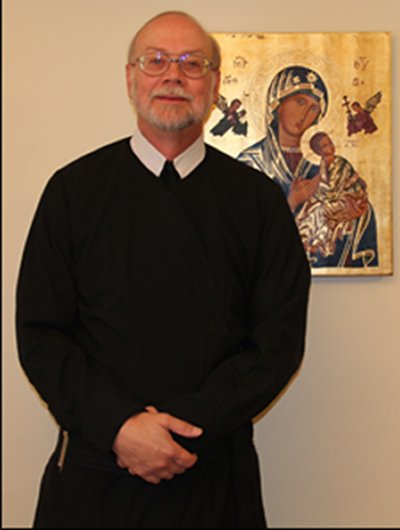A New Year is heralded by joy and celebration, and often accompanied by resolutions. The defining attitude of celebration is one of anticipation in hopefulness. We look forward to a fresh start, in hope that the next year will be better than the previous one. But it is also helpful to ask ourselves precisely what a “year better than the previous one” should look like.
Theology teaches us that if hope is any kind of a virtue, it must be a theological virtue. What ordinarily passes for hope in human parlance is more akin to wishing for things attained or events occurring. This type of hoping can be used for evil as well as for good. It can never be considered a virtue, since a virtue is defined as a good quality of mind of which no one can make bad use. The virtue of hope, which is hoping only for the good in the truest sense, is beyond natural human capacity. It is something which, according to the aforementioned definition, “God works in us without us,” as grace overcomes a natural tendency toward pessimism and chronic dissatisfaction.
The virtue of hope is the lynch pin that connects faith to charity. It is a prerequisite for attaining the highest level of realization of the Christian life, a life characterized by love for others. On the day of profession, and every time we renew our vows, we Redemptorists end our public profession with the words “that apostolic charity may increase in me and in the whole Congregation.” Apostolic charity flows forth from a virtuous hope grounded in faith. Our vowed community life rests upon the virtue of hope. We choose to live a life of poverty, chastity and obedience – difficult by human nature’s standards – in the hope of attaining the greater gift of apostolic charity. And we bind ourselves to live together in a specific way according to the “spirit and way of life proper to our Congregation” in order to mutually support and challenge one another in keeping that hope strong, vital and active.
Hope can become less than “virtuous” if what we hope for (apostolic love) is replaced by hope for transitory things, comfort, honor, security, or with a Pollyannaish optimism that ignores the reality of our situation and the challenges of life and ministry we need to face and act upon. If this occurs, our religious and community life can flounder, and our apostolic zeal wane. And so, our founder encouraged us to resolve to cultivate the attitude of “distacco” or “detachment” from things, places, structures, and even ministries. He reminds us that the virtue of hope is engendered not by the good work we do or by what we have been able to accumulate, but by the lived practice of our faith, and especially by making good use of the Ordinary Means of Salvation, which we Redemptorists are sent to make accessible and attractive to the poor and most abandoned through our Extraordinary Preaching.
As missionaries, we are sent to offer faith and hope to those who have been told that they have no “right” to hope that salvation is possible for them. But we are only effective as missionaries if we ourselves have experienced in our own lives the realization of the truth that “In Him there is Mercy and Plentiful Redemption for all.” We reverence the Eucharist and celebrate it together regularly as brothers, frequent the Sacrament of Reconciliation, participate in community meetings, share possessions with one another – all in order to transform our own communities into partnerships of apostolic charity out of which our ministry and proclamation flow effectively and zealously. These are the ways we keep our hope alive and strong, so that we may attain the apostolic zeal and charity which are its supernatural consequence. Looking forward to the coming year in our Province, let us resolve to attend to our own local community life and see there the opportunity to rekindle our hope, to better help us understand that the New Year can never be truly new until we give ourselves over completely, as we vowed to do, to the “One Who Makes All Things New.” If we do, then 2016 will truly be a better year.
Stephen Rehrauer, C.Ss.R.
Father Stephen Rehrauer, C.Ss.R.
The third of six children in the family, he began his formal religious studies at age 14 when he entered the Redemptorist minor seminary in Edgerton, Wisconsin, U.S.A. He made his novitiate at Immaculate Conception Novitiate in Oconomowoc, Wisconsin and first professed religious vows as a member of the Congregation of the Most Holy Redeemer on July 28, 1974.
Doctorate in Moral Theology in the Spring of 1996, writing his dissertation on Responsibility and the Human Person: Its Nature and Attribution in Moral Theology and the Contribution of Psychological Theories of Attribution, under the direction of the highly respected Spanish moral theologian Miguel Rubio, C.Ss.R.
In 1997 he was asked by the Alphonsian Academy to join the faculty as an invited professor and accepted the invitation to teach in the department of ‘Empirical Anthropology.’
More…
http://www.alfonsiana.org/english/istituto/docenti/en_rehrauer.htm






